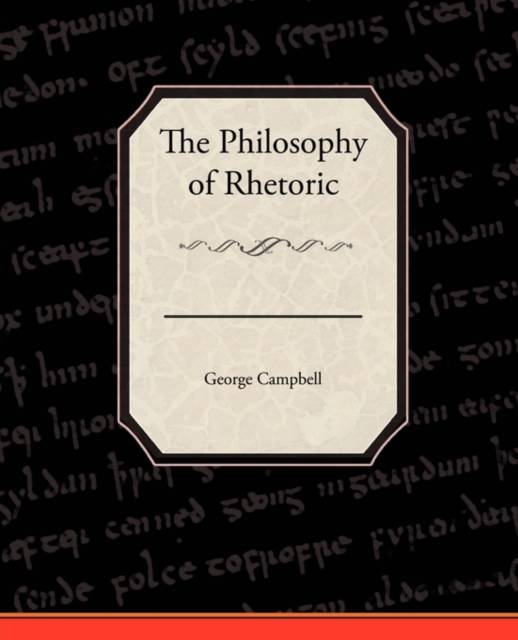
- Afhalen na 1 uur in een winkel met voorraad
- Gratis thuislevering in België vanaf € 30
- Ruim aanbod met 7 miljoen producten
- Afhalen na 1 uur in een winkel met voorraad
- Gratis thuislevering in België vanaf € 30
- Ruim aanbod met 7 miljoen producten
Zoeken
Omschrijving
The Philosophy of Rhetoric is widely regarded as the most important work of a theory of rhetoric produced in the 18th century. Campbell's work engages such themes in an attempt to formulate a universal theory of human communication. Campbell attempts to develop his theory by discovering deep principles in human nature that account for all instances and kinds of human communication. He seeks to derive all communication principles and processes empirically. In addition, all statements in discourse that have to do with matters of fact and human affairs are likewise to be empirically derived. Thus, his theory of rhetoric is vastly wider than, and different from, such classical theories as those proposed by Aristotle, Cicero, and Quintilian, whose theories focused on discourse related to civic affairs. By attempting to elaborate a general theory of rhetoric through empirical procedures, Campbell's project reveals the limitations of his method. He cannot ground all statements empirically and it is at this point that his theological position comes into play. Inspection of his religious views shows that God's design of human nature, and God's revelations to humankind, make moral and spiritual truths known and quite secure to human beings, although not empirically.
Specificaties
Betrokkenen
- Auteur(s):
- Uitgeverij:
Inhoud
- Aantal bladzijden:
- 192
- Taal:
- Engels
Eigenschappen
- Productcode (EAN):
- 9781438519081
- Verschijningsdatum:
- 8/06/2009
- Uitvoering:
- Paperback
- Formaat:
- Trade paperback (VS)
- Afmetingen:
- 190 mm x 235 mm
- Gewicht:
- 340 g

Alleen bij Standaard Boekhandel
+ 56 punten op je klantenkaart van Standaard Boekhandel
Beoordelingen
We publiceren alleen reviews die voldoen aan de voorwaarden voor reviews. Bekijk onze voorwaarden voor reviews.











